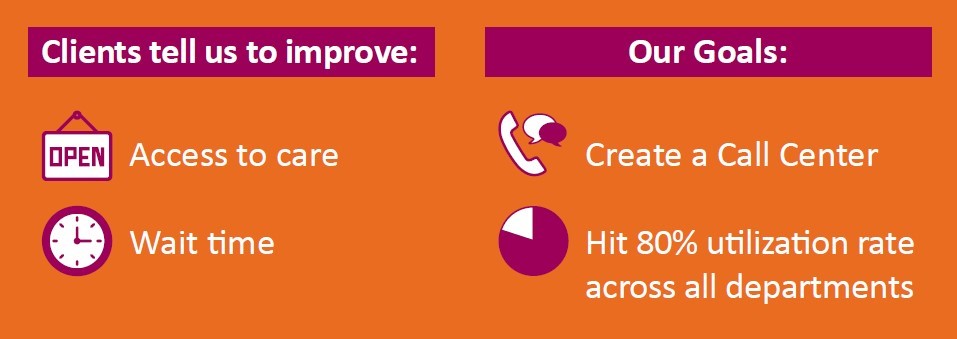Pass the Mic features the voices and stories of people with a lived experience of homelessness. In this edition, hear from Deborah - a US Army veteran, Bingo lover and lifelong volunteer.
The Mayor’s Office of Homeless Services has declared a winter shelter warning for Friday, January 17, 2025 at 4 pm until Thursday, January 23 at 9 am. Call 211 (available 24/7) or 443-984-9540 to connect with shelter. Get more info here.


04.27.22
"Are we meeting clients with what they need, when, where and how they need it?” These are the central questions guiding Chief Quality Officer Tolu Thomas, MSN, RN.
“We know that the people we serve—52% Black and 34% Hispanic/Latinx—are less likely to seek care in the first place,” says Tolu. “They do not trust the health care system because, historically, they have been harmed by the system.”
Some clients have never had a primary care provider before. And many are looking for long-term care after being disconnected for a variety of reasons.
“Data is the first part of the puzzle,” says Tolu. “What we do with that data and how we target biased actions is what I am excited about.”
Examining our data by race, gender, sexual orientation, insurance and more is also helping us see trends that we might otherwise miss.
“Disaggregation of data allows us to determine whether disparities exist and to what extent,” says REI Health Equity Specialist Arie Hayre-Somuah, LMSW, MPH. “It helps us develop interventions to target the groups that are disproportionately affected and provides metrics that we can use to hold ourselves accountable in working to achieve racial and health equity.”
In the last year, we found that Black men reported higher rates of dissatisfaction across our services than any other group coming in for care. And Hispanic/Latinx clients have the highest rates of uncontrolled diabetes.

Practices across the agency need to change based on client data. For instance, we need to introduce all providers to clinical trainings focused on culturally appropriate care for Black and Hispanic/Latinx community members. And recruiting Black men across provider roles—as nurses, nurse practitioners, doctors and social workers—is critical.
Another example of changes to care: Arie and the Quality Assurance department are focused on naming and addressing bias and assumptions about obesity and helping providers shift to think of “health at every size.”
“Reacting to data can be slow,” says Tolu, “but when we do, the impact to staff and clients is so important.”
More Recent News
Follow a “Day in the life” of SOAR, one of our littlest known programs that makes a big impact for people experiencing homelessness with mental health disabilities. SOAR Coordinator Mina Davis-Harrison and Disability Outreach Assistant Specialists Dave Ramsey and Natasha Legette facilitate the national “SSI/SSDI Outreach, Access, and Recovery” program for all of Baltimore City.
Youth Empowered Society (YES) is Baltimore City’s only drop-in center for youth experiencing homelessness. We chatted with Program Director Ciera Dunlap about the need for youth services, the new location and the year ahead.
Many of our public policies create and prolong homelessness. Regardless of the political party in office, each of us has the power and responsibility to https://nhchc.org/make our values known.



